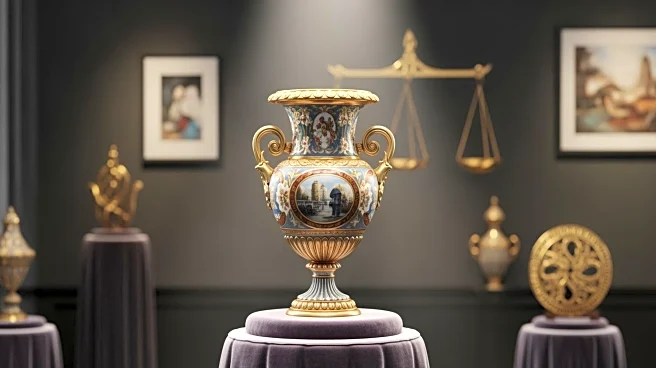What's Happening?
The Okada Museum of Art, founded by Japanese billionaire Kazuo Okada, is set to auction major works to settle a $50 million legal bill. The bill stems from a dispute with casino mogul Steve Wynn, which
was resolved out of court in 2018. Okada contested the fee presented by his law firm, Bartlit Beck, but the firm successfully pursued its claim through arbitration and court proceedings. Sotheby’s in Hong Kong will conduct the auction on November 22, featuring 125 lots of Asian art, including late Shang ritual bronzes, Qing imperial porcelain, Japanese screens, and Korean ceramics.
Why It's Important?
The auction of the Okada Museum's treasures underscores the financial and legal complexities faced by art institutions and their founders. The sale of culturally significant artworks to cover legal expenses highlights the intersection of art, business, and law. This event may impact the museum's reputation and its ability to preserve and showcase Asian art. The auction also reflects broader trends in the art market, where high-value pieces are increasingly used to settle financial disputes. Collectors and art enthusiasts may view this as an opportunity to acquire rare and valuable works.
What's Next?
The upcoming auction at Sotheby’s is expected to attract significant interest from collectors and investors, given the rarity and cultural importance of the pieces. The sale may influence future legal and financial strategies for art institutions facing similar challenges. Stakeholders in the art world will likely monitor the auction's outcomes to assess its impact on the market and the museum's future operations.
Beyond the Headlines
The sale of the Okada Museum's treasures raises ethical questions about the commodification of cultural heritage. It highlights the tension between preserving art for public enjoyment and using it as a financial asset. The auction may prompt discussions on the responsibilities of art collectors and institutions in safeguarding cultural artifacts.









